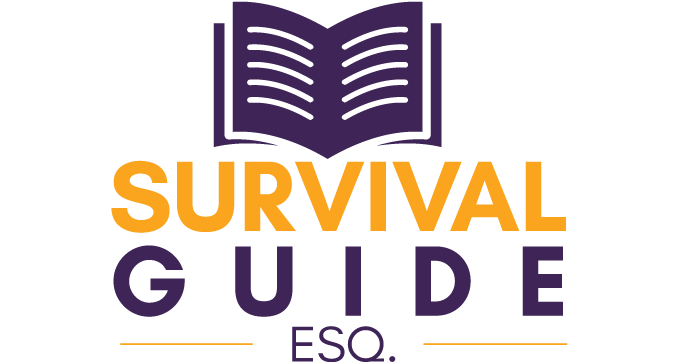Professional success is not achieved through participation trophies

Photo illustraton by Sara Wadford/ABA Journal
The well-meaning T-ball coaches who implemented participation awards and kicked off the “everyone gets a trophy” era of youth sports likely had no idea of the future implications of their actions.
Read: rampant, unapologetic entitlement.
If you’re reading this, you’ve likely graduated from law school, passed the bar exam, been sworn in and started practicing. Congratulations! Those are commendable achievements that have provided you with relatively consistent, tangible and positive feedback over the past several years.
But now you’re settling into the legal profession, learning to apply your skills and understanding what it means to practice law. Aside from your annual reviews and compensation adjustments, partnership and promotions—the latter of which may be several years away—there are few external rewards to keep that warm and fuzzy feeling you’ve become accustomed to now that you’re in the thick of it. The instant gratification of a test grade and constant encouragement or feedback from a parent or professor is gone.
Lawyers, especially new practitioners, are not rewarded for simply showing up. And since the learning curve from law student to lawyer is steep, most of the feedback you’re likely to receive the first few years of practice is critical.
Therefore, it is important to your long-term professional—and, I would argue, personal—success to remove any sense of entitlement, to challenge yourself regularly and to find security and confidence from within.
Stated differently, the purpose of this installment of Survival Guide, Esq. is to discourage seeking false accolades and encourage the development of your internal self-worth.
 Erin Rhinehart (Photo courtesy of Faruki)
Erin Rhinehart (Photo courtesy of Faruki)Set professional goals
There have been many articles and commentaries critiquing the “everyone gets a trophy” mentality as a detrimental overcorrection for building self-esteem. The general argument is that it teaches individuals not to try and to be entitled—leaving you with generations that lack self-sufficiency and overrely on external rewards for self-confidence and acceptance.
So how can you avoid falling into that trap?
First, by recognizing that as a new lawyer, you have a lot to learn about the practice of law, your firm or company, clients’ needs and expectations, and what it means to be a “good lawyer.” You’re entitled to a professional and positive—but challenging—work environment. You’re entitled to learning opportunities, constructive feedback and guidance. You’re entitled to fair compensation for your work.
You’re not, however, entitled to pick and choose your assignments; come and go as you please; ignore communications, directives and feedback from your superiors and clients; blow deadlines; or conduct yourself unprofessionally. Opportunities, promotions, bonuses must be earned—and often will take much longer to achieve than you think.
Second, understanding the foregoing, think about the type of lawyer you want to be—now and five to 10 years from now. Do you want to take a deposition, conduct an oral argument and master your trial skills sitting first chair? Do you want to negotiate and manage a multimillion-dollar acquisition? Do you want to lead a practice group or make partner in your law firm? Do you want to work in-house and become general counsel? Do you want to start your own law firm?
Once you have some idea of where you want to go, it makes planning the trip that much easier. You can better identify the necessary foundational skills you need to develop and the mentors who can advise and guide you. Draft a plan—but do it in pencil (metaphorically speaking, of course—you can type it in your Notes app, jot it down on a legal pad or simply open a Word doc). The point is, plans change and evolve. Be flexible.
Finally, depending on your practice level, pick two or three goals to achieve each year. For example, if the five-year goal is to sit first chair at a jury trial, then you should be thinking about mastering written discovery, taking depositions to hone your witness examination skills, developing your oral argument skills for opening and closing, and learning about voir dire and how to talk to a jury. Pick two (e.g., drafting and responding to written discovery, and participating in the preparation for taking a deposition and observing that deposition) and work to achieve by making your goals known to those who can help you, and by being available to take on new projects—even when the timing may not be perfect (hint: the timing is rarely perfect when opportunities arise).

Check in on your progress
Now that you’ve set some goals, stay accountable to yourself. Set calendar reminders every few months to see how you’re progressing. Keep track of the work you’re completing toward achieving your goals—whether that’s in your Notes app, on your legal pad or in your Word doc.
If after six months you haven’t made any progress, ask yourself why. There are a lot of reasons—some within your control and some outside it.
But be honest with yourself. Has an opportunity presented itself, but your fear of discomfort or failure held you back? Did you turn down an assignment that would have brought you closer to your goal, but you already felt too busy with other projects or personal commitments?
As the old adage goes, we are what we choose to be. Have the hard conversation with yourself about what is holding you back. Don’t fear the discomfort—it’s simply a sign of growth. Every lawyer (and I mean every lawyer) has experienced nerves, anxiety and self-doubt. But it is those lawyers who push through those uncomfortable feelings and try anyway who rise to the tops of their respective fields.
None of us is perfect. We are all practicing. We all have made mistakes. Some of us just decided to get up and keep going.
Reward yourself
As mentioned at the outset, no one is handing out a trophy or medal after you take the deposition or close the deal. There’s no gold star that gets affixed to the stellar motion you drafted. So when you achieve one of your goals (big or small), recognize it. Take a breath and savor the fruits of your labor. Reward yourself. Buy the shoes. Eat the cake. Schedule the massage. Find something that motivates you and chase it.
While everyone loves external appreciation from their boss or client, it may not always be there. Learn to be happy with yourself. Learn to appreciate the wins—big and small. We all excel at wallowing in the losses; we need to learn to recognize and savor the good times, too.
Mastering these skills takes time. But stripping yourself of the entitlement, embracing the challenges of the profession and knowing your self-worth will go a long way to ensuring a long, successful and fulfilling career—regardless whether there are any trophies on your shelf.
This story was originally published in the October/November 2024 issue of the ABA Journal under the headline: “Everyone Doesn’t Get a Trophy: Professional success is not achieved through simple participation.”
Erin E. Rhinehart is co-managing partner of Faruki in Dayton, Ohio. Her practice focuses on commercial litigation, spanning a variety of issues and industries.
Survival Guide, Esq. offers advice for early-career lawyers through a partnership between the ABA Journal and the ABA Young Lawyers Division. The authors of the column welcome any of your questions. Please send them to [email protected]. This column reflects the opinions of the author and not necessarily the views of the ABA Journal—or the American Bar Association.



